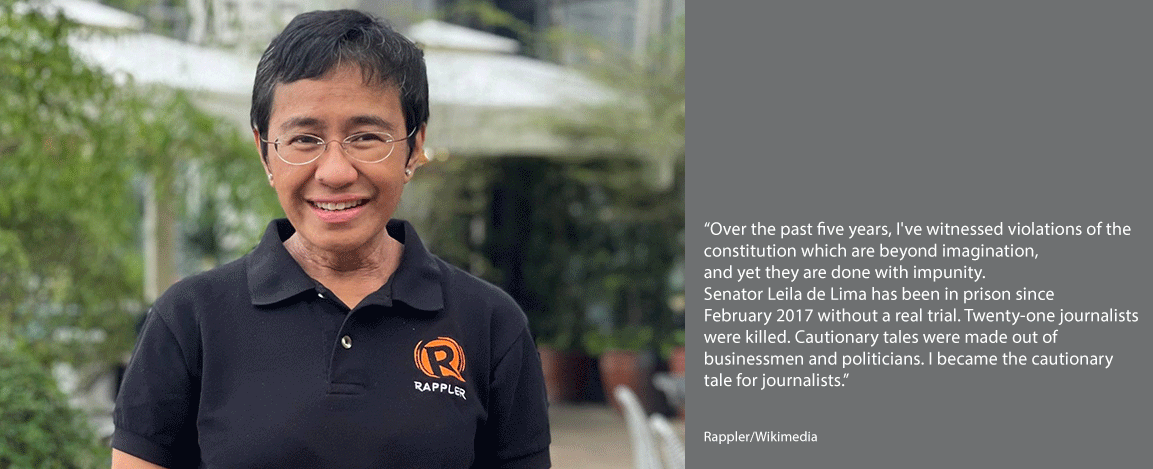She's staring down the authoritarian regime in the Philippines that's threatening her with 60 years in prison. Ada Petriczko, the 2021 Elizabeth Neuffer Fellow at the International Women's Media Foundation and a research associate at MIT's Center for International Studies, interviewed the Filipino-American journalist for Boston Globe Ideas. The published interview is available here in the Boston Globe and also available here for free to the MIT community.
Maria Ressa, the Filipino-American journalist who last month shared the Nobel Peace Prize, likes to quote the biologist E.O. Wilson: “The real problem of humanity is the following: We have Paleolithic emotions, medieval institutions, and god-like technology." Ressa would know. As the co-founder and CEO of Rappler, an investigative media outlet based in Manila, she has worked to uncover corruption, expose abuses of power, and shine a light on President Rodrigo Duterte's bloody war on drugs, making her a target of the Philippines' authoritarian regime and online haters. Ressa has also been locked in an uneven battle against Facebook over the platform's role in allowing the spread of fake news and hate speech in her country.
Ressa faces up to 60 years in prison in the Philippines on charges of cyber libel and tax evasion, both of which human rights advocates decry as a harassment campaign. But the embattled journalist refuses to be silenced.
Currently a Shorenstein Fellow at Harvard, Ressa sat down with Ideas to discuss freedom of the press, the pernicious grip of social media, and what the Nobel Committee's recognition of her “efforts to safeguard freedom of expression, which is a precondition for democracy and lasting peace" has meant to her.
Ada Petriczko, the 2021 Elizabeth Neuffer Fellow at the International Women's Media Foundation and a research associate at MIT's Center for International Studies, interviewed the Filipino-American journalist for Boston Globe Ideas. The published interview is available here in the Boston Globe and also available here for free to the MIT community.




